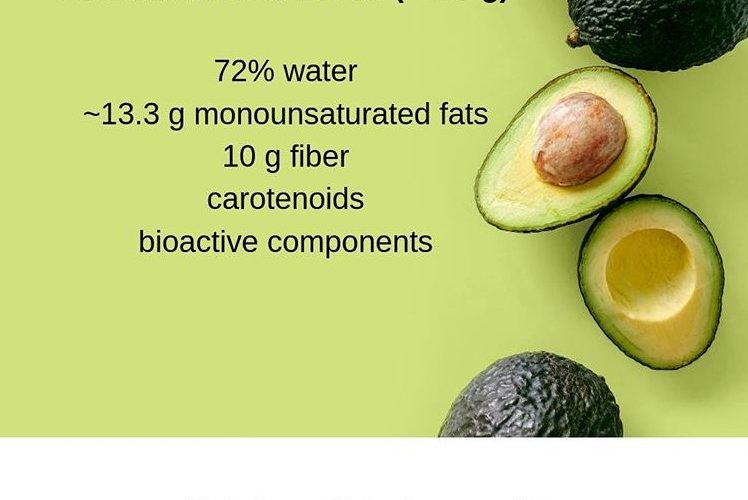For years, fat has been targeted as one of the main causes of obesity, but fat in someone’s diet isn’t what makes someone fat. The diet-heart hypothesis falsely attributed eating fat with the development of atherosclerotic heart disease. This anti-lipid agenda led to the low-fat craze, which replaced fat with tasty acellular carbohydrates, paradoxically resulting in a dramatic rise in the obesity rate and a worsening of heart disease, obesity, and diabetes.
Reducing fat intake is not the key to reducing obesity. Re-examining macronutrients in the diet as well as understanding satiety (feeling full) and controlling food intake is the key.
Replacing carbohydrates with avocado increased feelings of satiety, and this was caused primarily by PYY, a peptide hormone secreted by cells lining the ileum and the colon. PYY decreases food intake by inhibiting gut motility, acting as an “ileal brake” to cause a sense of satiety. According to the National Institutes of Health, “replacing carbohydrate with fats and fibers derived from avocados without increasing energy or energy-density enhanced the satiety value of meals in overweight and obese individuals as evidenced by greater hunger suppression.”
Conclusion:
Fat is a potent stimulator of PYY, enhancing satiety and reducing motivation to eat, keeping you full for 6-8 hours. By contrast, carbohydrates increase motivation to eat and don’t significantly increase PYY. Carbohydrates increase insulin, and in obese individuals cause reactive hypoglycemia, making them hungry in 2-3 hours.
That’s why people on whole natural food diets that are higher in fat tend to weigh less and have less heart disease and diabetes.
Lanjun Zhu, et al. Nutrients, 2019; 11 (5): 952






